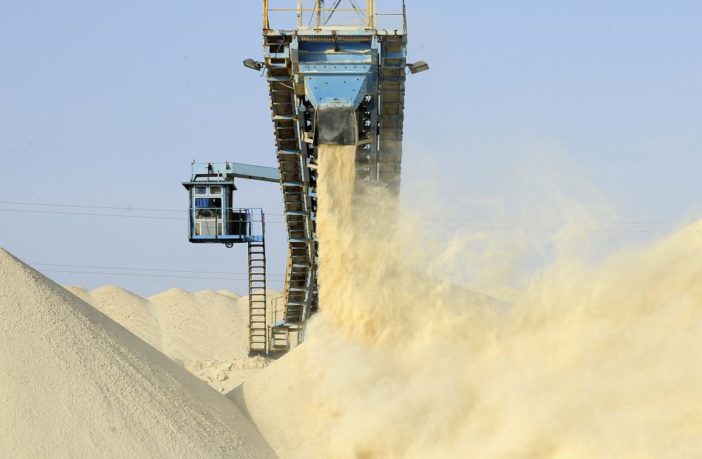OCP Group
The farming sector is critical to New Zealand’s economic success. But even successful farms need the right fertiliser, at the right time and with the right properties.
Recent commentary about phosphate rock shipments to New Zealand has at times been selective and misleading. It is important to get the facts straight to enable a sensible discussion.
Morocco’s OCP Group is the largest supplier of phosphate rock, phosphoric acid and phosphate fertilisers in the world. We supply raw and made to order products to more than 160 countries across all five continents. We are also an active promoter of agri-services, particularly around the sustainable and responsible use of phosphate.
In New Zealand, OCP has been a partner to two fertiliser cooperatives, Ballance Agri Nutrients and Ravensdown, for almost 40 years.
OCP manages more than 50 billion tonnes or just over 70 per cent of the world’s known reserves of rock phosphate – enough to last at least 500 years at OCP’s current production rate.
Just approximately two per cent (2%) of OCP’s managed reserves are located in the Southern provinces of Morocco (internationally known as Western Sahara) – where most of New Zealand’s phosphate rock comes from.
This phosphate is chosen because of its suitability to New Zealand’s specific soil conditions and environmental constraints.
Just as important, “Western Sahara”’s phosphate rock has physical properties that make fertiliser granules more stable so they don’t break down or powder. This makes it easier to transport and apply accurately, thus reducing waste.
OCP’s operations in the region are run by a company called Phosboucraa, which currently produces and exports over 2 million tonnes of phosphate rock per year to many countries around the world. As such, New Zealand is among a wide range of international partners importing phosphate from “Western Sahara.”
OCP takes no dividends from Phosboucraa with all profits reinvested in the region to maintain and expand operations and to support the local community. All of OCP’s operations and activities, including Phosboucraa, meet and go beyond national and international standards for health and safety, environmental quality and sustainability.
“Western Sahara” is classified by the United Nations as a non-self-governing territory – one of 17 worldwide, including Tokelau which is administered by New Zealand.
The political status of the region is currently subject to a negotiation process led by the Secretary-General of the United Nations.
The United Nations has developed a doctrine which allows and encourages trade and investment in non-self-governing territories to promote economic development and provide opportunity to the local population.
Indeed, earlier this year, the European Union, with the overwhelming support of the European Parliament, the European Commission and the EU’s 28 Member States, approved the revision of two EU-Morocco trade agreements related to agricultural and fisheries products to explicitly extend trade preferences to goods coming from “Western Sahara.”
New Zealand, through companies such as Ravensdown and Ballance Agri-Nutrients, should be proud to be associated with the economic development of the region boosted by trade agreements such the one mentioned above, which have direct positive impact on the local population.
OCP and Phosboucraa have worked rigorously to ensure that all operations and activities comply and exceed all relevant standards, including those established by the United Nations. We do so not simply because it is what is required, but because it is the responsible thing to do towards the local community who takes the improvement of its economic conditions very seriously while the final status of the territory is being negotiated under the auspices of the UN.
It is important to keep in mind that Phosboucraa is the largest private employer in Western Sahara, employing almost 2,200 people – 75 per cent of whom are locals across all levels of Phosboucraa. Phosboucraa additionally engages over 50 local contractors who in turn employ over 700 people from the region. These business opportunities surrounding Phosboucraa’s operations are essential to sustaining and promoting economic dynamism in the region. Of course, these positive actions along with other private and public investments in “Western Sahara” are not appreciated by those with their own political agenda who seek to obstruct these efforts to the detriment of the economic development of the region.
On the other hand and as part of its commitment to the region and the local population, Phosboucraa has invested heavily in skill-building, training and access to education in order to assure that the local community continues to have a growing presence in and around Phosboucraa.
The Phosboucraa Foundation was established in 2014 to administer Phosboucraa’s corporate sustainability programmes in the region, supporting its employees and the broader local community through education, training and access to healthcare.
These include the construction and support of pre and primary schools for local children, housing for Phosboucraa’s workers and retirees, and the provision of services, medical clinics, recreational centres and learning centres serving the local community, which are particularly focused on opportunities for youth and women. These efforts are part of a broader mission to provide the region with an ongoing and growing source of prosperity far into the future.
OCP has been a partner to New Zealand and its farmers for many years. We are vested in the success of agriculture in Morocco, New Zealand and around the world. We and our partners do things the right way together.
ends







